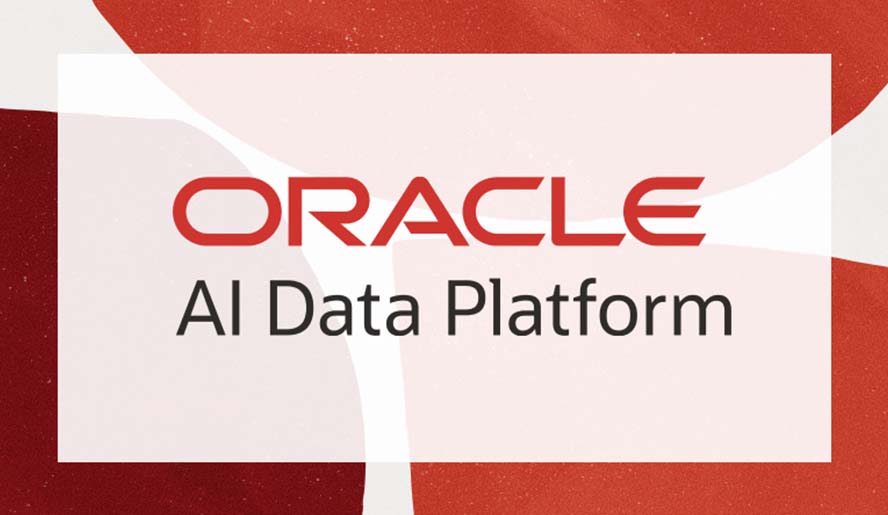
LAS VEGAS—Oracle announced general availability of its AI Data Platform here this week at Oracle AI World. The platform simplifies custom enterprise AI application development by providing a broad set of foundation LLMs, robust support for emerging AI development tools and protocols, and an extensible AI-ready data repository, all designed to work together. By accessing these services via a single cloud platform, enterprise developers, data scientists, and data engineers can collaborate more easily to create secure, governed AI applications that yield vital insights and improve productivity.
Oracle AI Data Platform combines Oracle Autonomous AI Database and open format data stores including those based on Delta Lake and Apache Iceberg. It creates a master catalog of that enterprise data while also providing data security, governance, and lineage tracking. Structured and unstructured data are managed and prepared for use in AI application development. Along with internal data sources, the platform accepts batch and streaming data imports using Oracle Goldengate, which facilitates real-time data replication.
“By unifying data and simplifying the entire AI lifecycle, Oracle AI Data Platform is the most comprehensive foundation for enterprises seeking to harness the power of AI with confidence, security, and agility.”
“Oracle AI Data Platform enables customers to get their data ready for AI and then leverage AI to transform every business process,” says T.K. Anand, executive vice president of healthcare and analytics at Oracle. “By unifying data and simplifying the entire AI lifecycle, Oracle AI Data Platform is the most comprehensive foundation for enterprises seeking to harness the power of AI with confidence, security, and agility.”
AI agents and other enterprise AI applications can leverage leading foundation models including OpenAI, Llama, Gemini, Grok, and Cohere. These models access enterprise data through retrieval-augmented generation (RAG), which provides organization-specific insights to GenAI-based applications, and the Model Context Protocol (MCP), which lets AI agents securely use data while adhering to the access rules that govern the data source. Agents can communicate with one another through the Agent2Agent protocol. With A2A, AI agents can use the services of other agents created with AI Data Platform, those provided by Oracle, and those created outside the platform.
Developers will find the AI and statistical data analytics tools they’re familiar with, including open source frameworks such as Apache Flink and Apache Spark, and will have access to all the resources available in Oracle Analytics Cloud.
Enterprise applications developed on Oracle AI Data Platform operate reliably and at scale thanks to the underlying Oracle Cloud Infrastructure. OCI provides access to CPUs, GPUs, and massive data storage, all connected with extremely low-latency, high performance networking. OCI now runs in Amazon Web Services, Google Cloud, and Microsoft Azure data centers, letting enterprises position AI agents and applications developed on the platform anywhere they need to.
Finally, customers using Oracle business applications—including Oracle Fusion Cloud, Oracle Health, Oracle NetSuite, and Oracle Industries applications—can leverage AI Data Platform versions built to work with their application data. The platform’s data access, management, and governance capabilities further simplify the creation of AI-based analytics applications. Customers will also find Oracle-developed analytics solutions created specifically for their business applications, facilitating productivity on day one.
-
Oracle AI Data Platform
Build apps and agents that safely use your enterprise data.
-
AI in Action: 11 Use Cases to Spark Your Strategy
Ready to use LLMs, AI agents, and advanced machine learning to automate workflows, win customers, and make people more productive?
